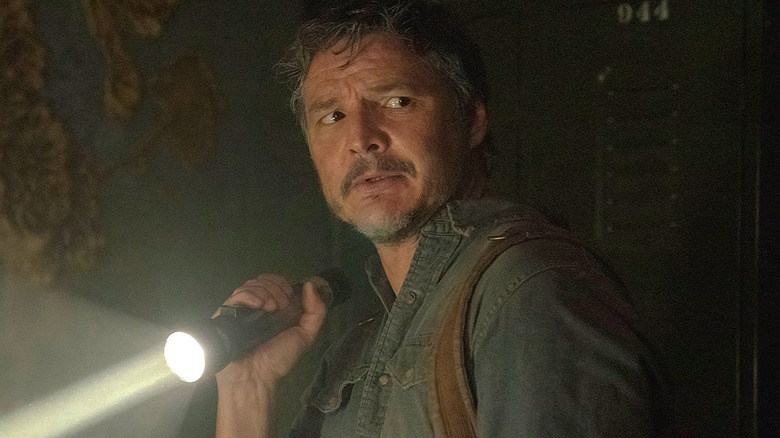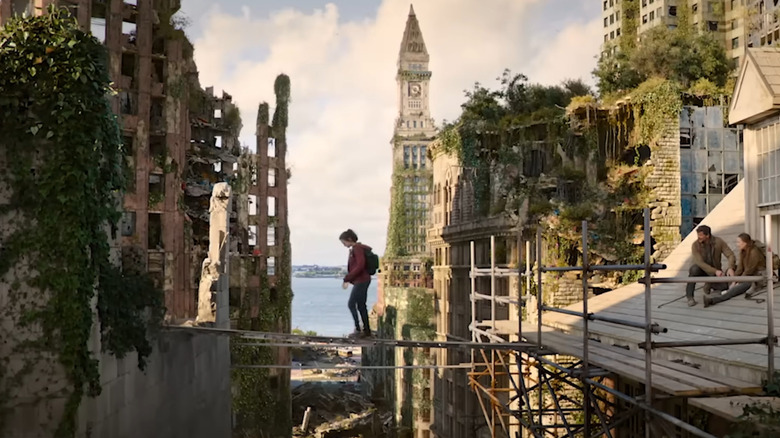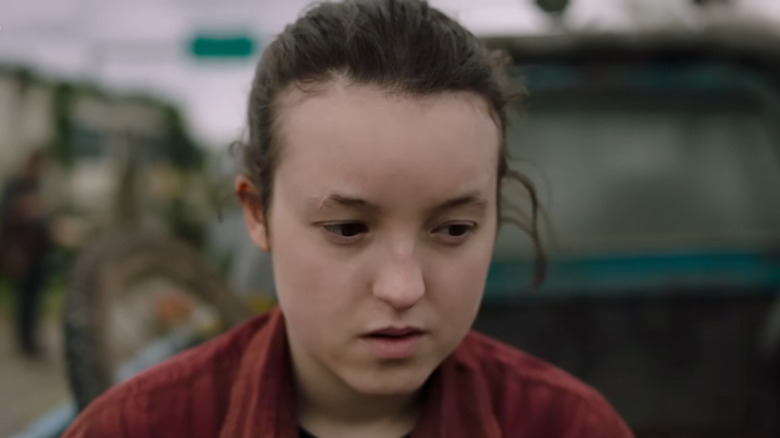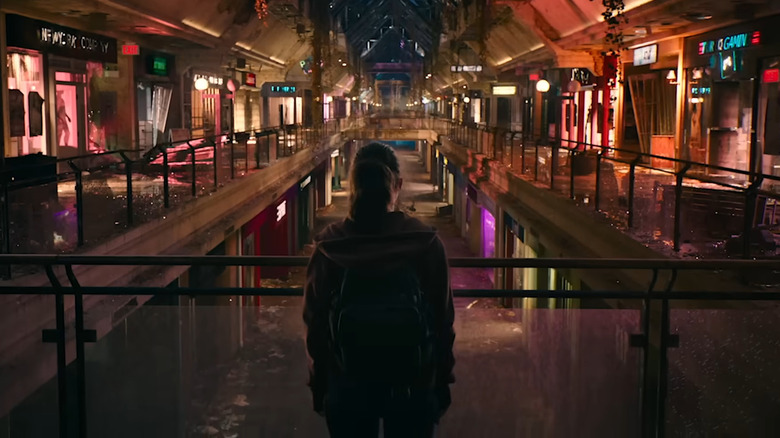HBO's The Last Of Us Needs To Get One Thing Right To Win Us Over
Contains spoilers for the video game "The Last of Us," from which the HBO series "The Last of Us" was adapted
In 2013, video game writer and director Neil Druckmann had a hand in ending the world as we know it. Ten years later, he's doing it again in a live-action adaptation of the game that defined his career. "The Last of Us" is an award-winning survival horror title widely considered one of the best games ever made. Now it's transitioning to HBO as a nine-episode show, with Druckmann again orchestrating this epic story of heartache and horrors. For the uninitiated who don't check drawers and loot as much as possible, it's the hope that this adaptation will recapture the same top-level storytelling as the original and leave newcomers watching from behind their hands and crying into them as much as gamers are anticipating.
On paper, there's every reason it will do so, particularly with other parties involved. Joining Druckmann along for this hellish ride is Craig Mazin, the mind behind HBO's harrowing award-winner "Chernobyl," who knows just as well as his writing partner how to squeeze the life out of heartstrings besides simply pulling on them. With that said, the only concerning factor is that this is still a video game adaptation, a subgenre of TV and film that has only seen some entries slip through glitch-free in the past few years. For "The Last of Us" to do the same thing, there's one objective it needs to complete — which could lead to a real game changer for other projects of its ilk going forward.
The Last of Us needs to level up its already incredible story in live action
Wrapped in an incredible character-driven story about the unlikely duo Joel and Ellie (played in the series by Pedro Pascal and Bella Ramsey, respectively), "The Last of Us" is a nerve-shredding experience that tests your wits with puzzle-solving, stealth, and sparingly attempted headshots. It's the nature of the 64-bit beast. HBO's version needs to go beyond that. A show will be able to cast its gaze across a broader landscape and in doing so, make supporting characters in the game have a much richer part to play in the series.
Fan service is all well and good when we hear familiar names and locations, but the show could take us further than the game did with hidden collectible notes or short missions that secondary characters were a part of. By doing so, people like Bill (Nick Offerman), Tess (Anna Torv), or *shivers* David won't just offer us more time to get to know them better but will also fortify this world in a way that's new to both fans and newcomers alike. Its service to the small roles that helped this franchise become what it is could elevate HBO's take to be more meaningful. By doing so, though, it also allows inevitable moments to strike just as hard in their live-action replay as they did the first time around.
Tragedies need to hit twice as hard on The Last of Us
"The Last of Us" isn't going to be the cheeriest watch across its nine-episode run. This is a series about a deadly virus that turns victims into monsters. For the uninitiated, the question remains of just who is going to take the fatal hit. Which characters are going to suffer a scratch that turns out to be something worse or make a wrong choice that will leave them outgunned and out of options? If it sticks to the game, fans will be primed and prepped for what's to come, which is precisely why HBO should have certain individuals take a different route in their venture into the unknown.
Some characters' deaths are undeniably crucial to the story of "The Last of Us" and more importantly, certain figures involved in it. Joel's loss is what defines him and informs the choices he makes throughout this tale, but that doesn't mean that the stories of the people he meets have to play out the way they do in the game. Brave as it may be to veer off the path, certain losses or story developments could break hearts in a totally different way and make "The Last of Us" a better adaptation because of it. In doing so, it also allows the show to set a benchmark that could finally break a long-running tradition that both studios and video game adaptations can finally press restart on.
The Last of Us could be another first to change the settings in video game adaptations
There's no doubt that a shift has come into play. Gone are the days of what many regarded as video game ventures brought to horrific life in live-action adaptations. Now they're actually (brace yourself) good. The only issue that might be present, however, is style outweighing substance. The fan base may well back up their favorite title's trip to the small screen, but that's not enough to draw in the masses — or for it to be taken as seriously as some of the more prominent titles in pop culture. "The Last of Us" has every chance to change all that.
If the story and emotional depth beating through the core of the original game transitions to television, it could finally set the record straight that some video game adaptations are more than just easy cash-ins rife with Easter eggs, that the likes of "Gears of War," "Sifu," and even "Super Mario Bros." can get an extra life in a different format, setting up what might well be a new era in the big blockbuster movie. It seems a common debate is whether comic book movie fatigue is becoming more prominent in a post-"Avengers: Endgame" era. If it is, maybe it's time for a new player to enter the game. What better way to set the trend than by its being the greatest ever made?



